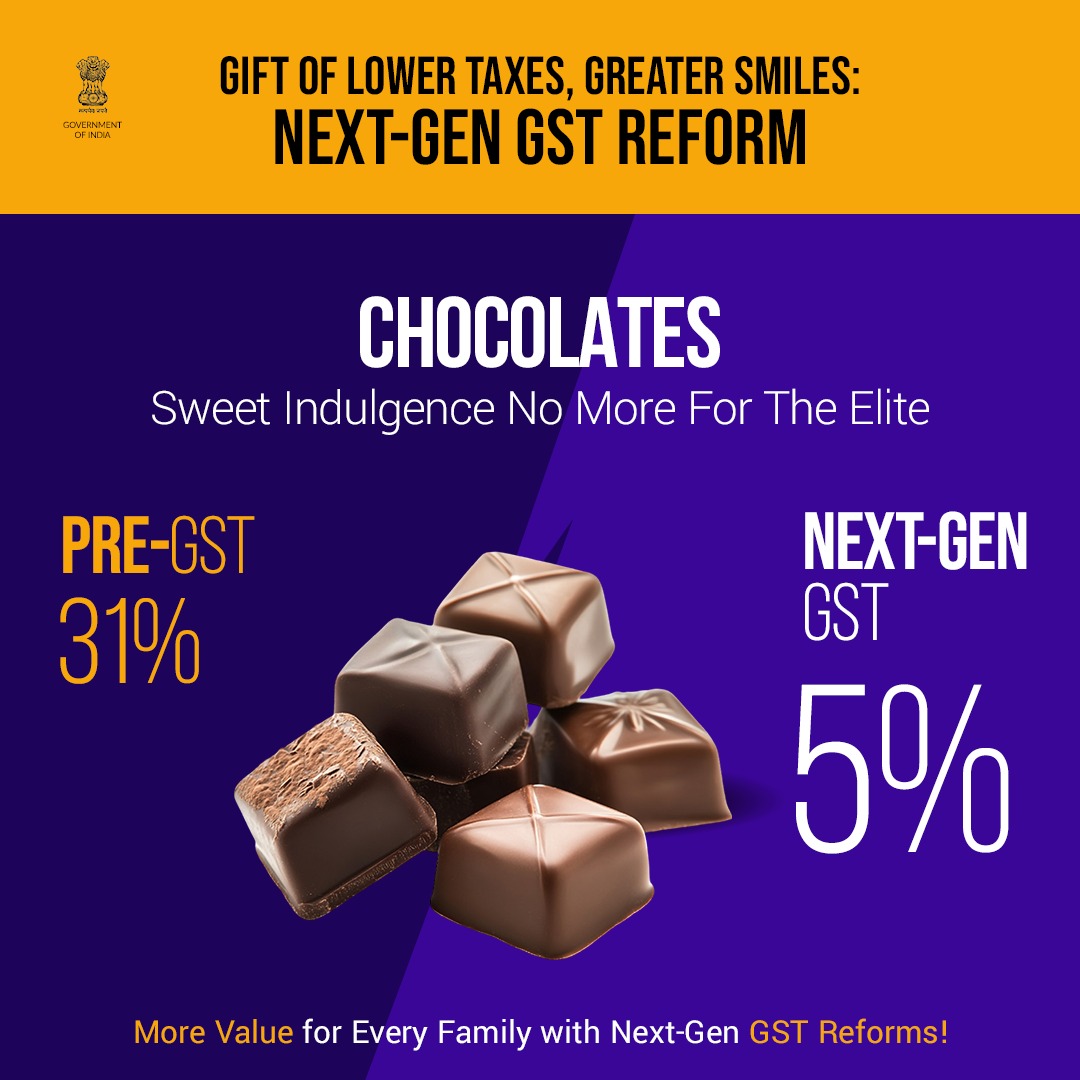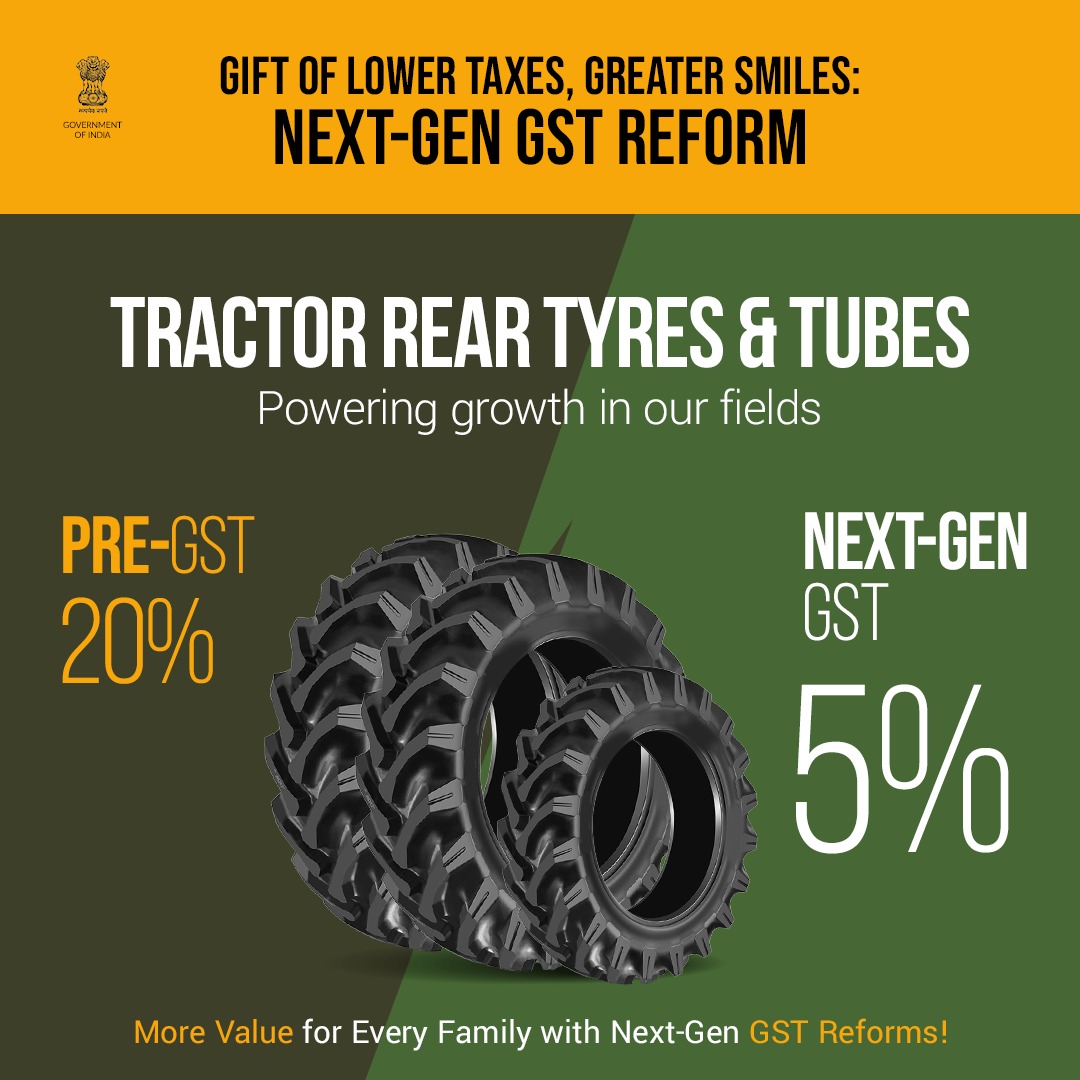GST 2.0: Catalyst For Inclusive Growth


FinTech BizNews Service
Mumbai, September 6, 2025: CII Western Region welcomes Next-Gen GST Reform.
“Inclusive Growth Gets a Boost with GST Reforms. The GST reforms are not just tax change~ they are a catalyst for inclusive growth. Lower rates, insurance exemptions, and MSME ease will boost confidence, spur consumption, and build a stronger economic foundation. CII is fully committed to enabling this transformation, stated Mr Rishi Kumar Bagla, Chairman CII Western Region.

Harsha Vardhan Agarwal, President, FICCI
FICCI hails the landmark decisions taken at the 56th GST Council Meeting, marking a transformative step in India’s economic journey and ushering in next-generation GST reforms. The Government, under the visionary leadership of Hon’ble Prime Minister, with the tireless efforts of Union Finance Minister, State Finance Ministers, and officials of the GST Council and CBIC, has once again delivered reforms that strengthen the foundation of a Viksit Bharat.

The rationalisation of GST rates into a simplified two-tier structure (18% and 5%), with a special de-merit rate for select goods, is a consumer focussed and growth-oriented reform that will bring transparency, predictability, and stability to India’s tax system. It will directly benefit households, labour-intensive industries, MSMEs, and critical sectors such as healthcare, agriculture, infrastructure, and automobiles—reducing costs for consumers, providing relief to businesses, and boosting consumption-driven growth.
Commenting on the GST rate rationalisation, Mr Harsha Vardhan Agarwal, President, FICCI said, “The GST rate rationalisation exercise carried out by the government and approved by the GST Council is a landmark reform and FICCI compliments the GST Council for the same. The simplification of the tax structure will offer multiple benefits. It will reduce classification disputes, improve compliance and address anomalies on account of inverted duty structure. While there are revenue implications of the announced measures as outlined by the government, the important point to note is the improvement in economic sentiments the reduction in rates will lead to and which in turn will boost consumption demand. This is a major positive for the economy both in terms of lifting growth and containing inflation.”
The reduction of GST rates on essential items and FMCG products such as soaps, shampoos, toothpaste, hair oil, bicycles, kitchenware, and packaged foods will ease household budgets and strengthen consumption. Lower rates on agricultural machinery, fertilizers, and inputs will reduce costs for farmers, enhance rural incomes, and support food security. Similarly, rate cuts on capital goods and industrial inputs will bring down manufacturing costs, improve competitiveness, and encourage fresh investments.
Relief to labour-intensive sectors like handicrafts, textiles, leather, footwear, marble, granite, and toys will strengthen MSMEs, safeguard traditional livelihoods, and create new jobs.
The automotive sector will gain from reduced rates on small cars, motorcycles, buses, trucks, and auto parts, boosting affordability and domestic manufacturing. Lower GST on cement, renewable energy devices, and construction materials will spur housing and infrastructure development, aligning with the Government’s vision of Housing for All and sustainable growth.
The reduction of GST on lifesaving drugs to 5% will significantly lower treatment costs, improve patient access, and reinforce India’s position as a global hub for affordable medicines.
Together, these measures will stimulate demand, improve affordability, and provide a strong push to sectors that are key drivers of employment and growth in the economy.
Commenting on the decisions taken at the GST Council meeting, Mr Anant Goenka, Senior Vice President, FICCI said, “The simplification of the GST tax rate structure is a transformative reform. The changes announced by the GST Council will boost consumption, improve competitiveness of industry and enhance the ease of doing business particularly for small businesses. We find many suggestions made by FICCI across sectors being accepted and we are grateful to the Prime Minister, Finance Minister and all members of the GST Council for ushering in this major structural reform. Industry is committed to pass on the benefits of lower rates to the consumers and FICCI will work with its members towards this.”
FICCI is of the view that the reforms will also have a far-reaching impact on exports, imports, and industrial competitiveness. Correction of inverted duty structures in textiles, fertilizers, and renewable energy will reduce import dependence and improve the global cost competitiveness of Indian goods. Lower GST on MSME-driven and labour-intensive sectors such as textiles, handicrafts, leather, and engineering goods will give a strong boost to exports while incentivising local value addition.
In addition to rate rationalisation, we also see a number of measures being announced that will improve the ease of doing business particularly for the small businesses.
The operationalisation of the Goods and Services Tax Appellate Tribunal (GSTAT) will strengthen the institutional framework as it will enable faster dispute resolution and foster trust among taxpayers. The removal of the threshold for GST refunds on low-value export consignments will provide timely liquidity to small exporters, particularly those engaged in e-commerce, courier, and postal exports, thereby easing working capital pressures and enhancing global competitiveness. We truly compliment the simplified GST Registration Scheme for small and low-risk businesses, with automated approval within three days. This forward-looking reform will reduce compliance burdens, encourage formalisation, and empower MSMEs to expand into new markets.
FICCI also welcomes the GST Council’s clarifications on intermediary services and post-sale discounts, both long-standing concerns for industry. Clarity on intermediary services will reduce ambiguity and disputes, particularly benefiting service exporters. Similarly, clearer provisions on post-sale discounts will provide much-needed certainty to trade and industry, ensuring that genuine commercial practices are not burdened with unnecessary tax challenges.
Ms Jyoti Vij, Director General, FICCI said, “The restructuring and simplification of the GST framework outlined by the government is a major milestone in India’s reform journey. The reduction in the number of tax slabs and movement of a plethora of goods and services to the ‘merit rate’ of 5% will give a big boost to the economy with consumption demand expected to move up in the days ahead. The stimulus that the announcements made by the government will provide to the economy will be long lasting and ensure that India continues to move ahead on the path of a high growth economy.”
FICCI reiterates its commitment to working closely with the Government and industry stakeholders to ensure the smooth implementation of these reforms. These landmark decisions not only simplify the tax structure but also reinforce India’s vision of building a competitive, inclusive, and future-ready economy. With these next-generation GST reforms, India moves decisively forward towards achieving the goal of Viksit Bharat, ensuring growth, jobs, and prosperity for all.